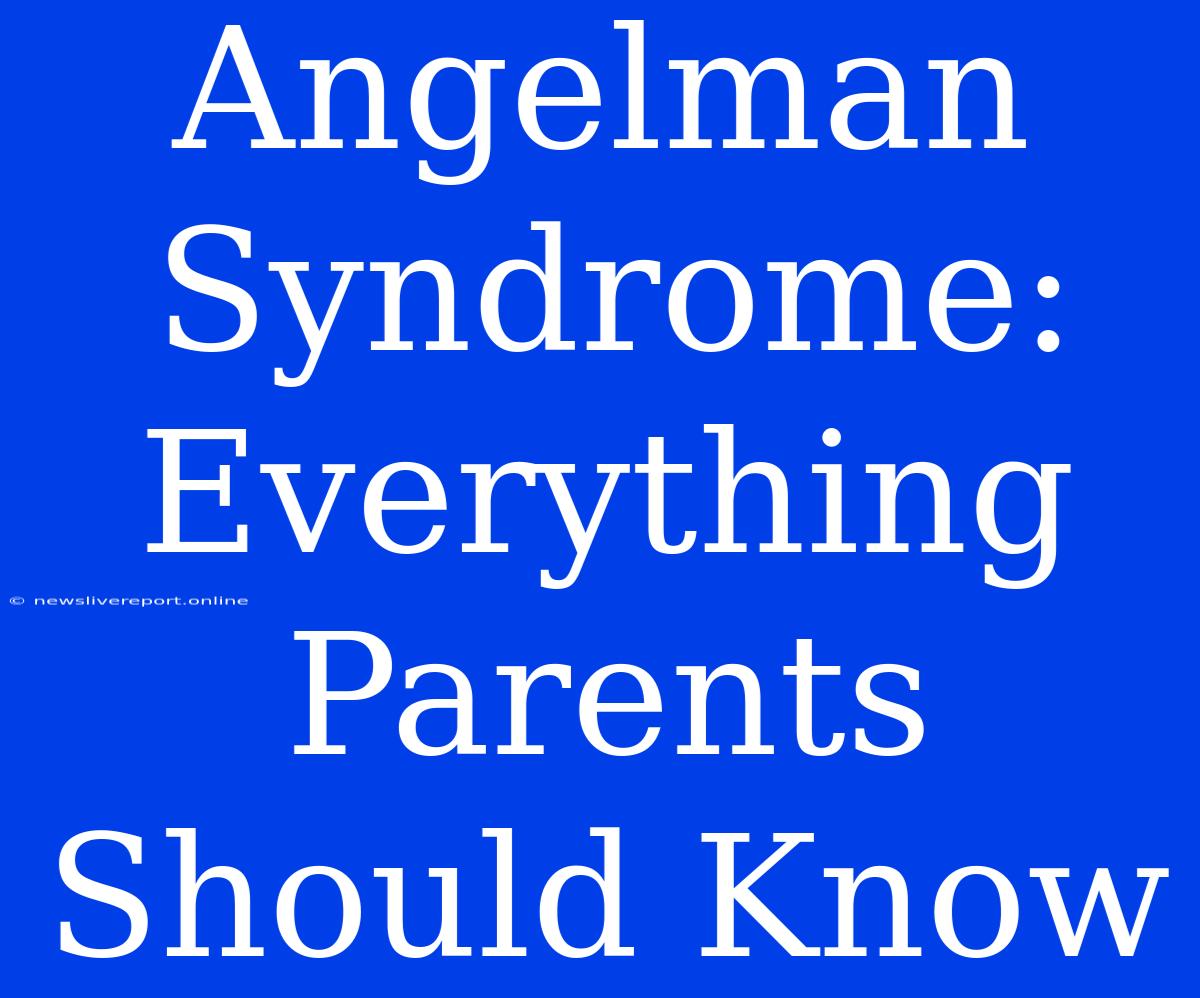Angelman Syndrome: Everything Parents Should Know
Angelman syndrome (AS) is a rare neurodevelopmental disorder that affects a child's physical, cognitive, and behavioral development. While there's no cure for AS, understanding its causes, symptoms, and management strategies can significantly improve a child's quality of life. This article will provide parents with essential information to navigate this complex condition effectively.
Understanding Angelman Syndrome
What is Angelman Syndrome?
Angelman syndrome is a genetic disorder caused by a problem with the UBE3A gene, which is responsible for producing a protein involved in brain development. This gene is located on chromosome 15.
Causes:
- Deletion: The most common cause is a deletion of a part of chromosome 15 that includes the UBE3A gene.
- Mutation: A change in the UBE3A gene itself can lead to AS.
- Maternal Disomy: This occurs when a child inherits two copies of chromosome 15 from their mother and no copy from their father.
- Imprinting Defects: Problems with the genetic imprinting process, where the UBE3A gene is silenced on the chromosome inherited from the father, can also lead to AS.
Symptoms:
Angelman syndrome symptoms are diverse and vary in severity. However, common features include:
- Developmental Delay: Delayed milestones in sitting, crawling, walking, and talking.
- Intellectual Disability: Challenges with learning, communication, and cognitive skills.
- Speech Impairment: Limited speech and often rely on nonverbal communication.
- Happy Disposition: A unique characteristic of AS is a happy, cheerful disposition with frequent smiling and laughter.
- Movement and Balance Issues: Walking difficulties, poor balance, and jerky movements.
- Seizures: A significant number of individuals with AS experience seizures.
- Sleep Disturbances: Difficulty falling asleep and staying asleep.
- Gastrointestinal Issues: Constipation, feeding problems, and gastroesophageal reflux.
- Characteristic Facial Features: Wide mouth, protruding tongue, and a large, prominent jaw.
Diagnosis and Management
Diagnosis:
A clinical diagnosis is made based on observing a child's symptoms and history. However, genetic testing is crucial for confirmation. Blood tests can detect the chromosomal deletion, mutation, or imprinting defect.
Management:
There is no cure for AS, but early intervention and specialized care can significantly improve a child's development and quality of life.
- Therapy: Physical, occupational, and speech therapy are essential for addressing developmental delays and motor skills.
- Education: Early intervention programs and specialized schools are vital for maximizing learning potential.
- Medication: Medications can help control seizures, manage sleep disturbances, and address behavioral challenges.
- Support Groups: Connecting with other families facing AS can provide valuable support, information, and a sense of community.
Living With Angelman Syndrome
Living with Angelman syndrome is a journey filled with challenges and joys. Here are some tips for parents:
- Educate Yourself: Learn everything you can about AS to understand its unique aspects and challenges.
- Connect with Others: Join support groups and online communities to connect with other families and professionals.
- Embrace Individuality: Each child with AS is unique, with individual strengths, needs, and challenges.
- Advocate for Your Child: Be your child's advocate, ensuring they receive appropriate care and support.
- Focus on Strengths: Celebrate your child's unique talents, personality, and achievements.
Remember:
Angelman syndrome is a complex condition, but with the right support, early intervention, and ongoing care, children with AS can thrive and lead fulfilling lives.

